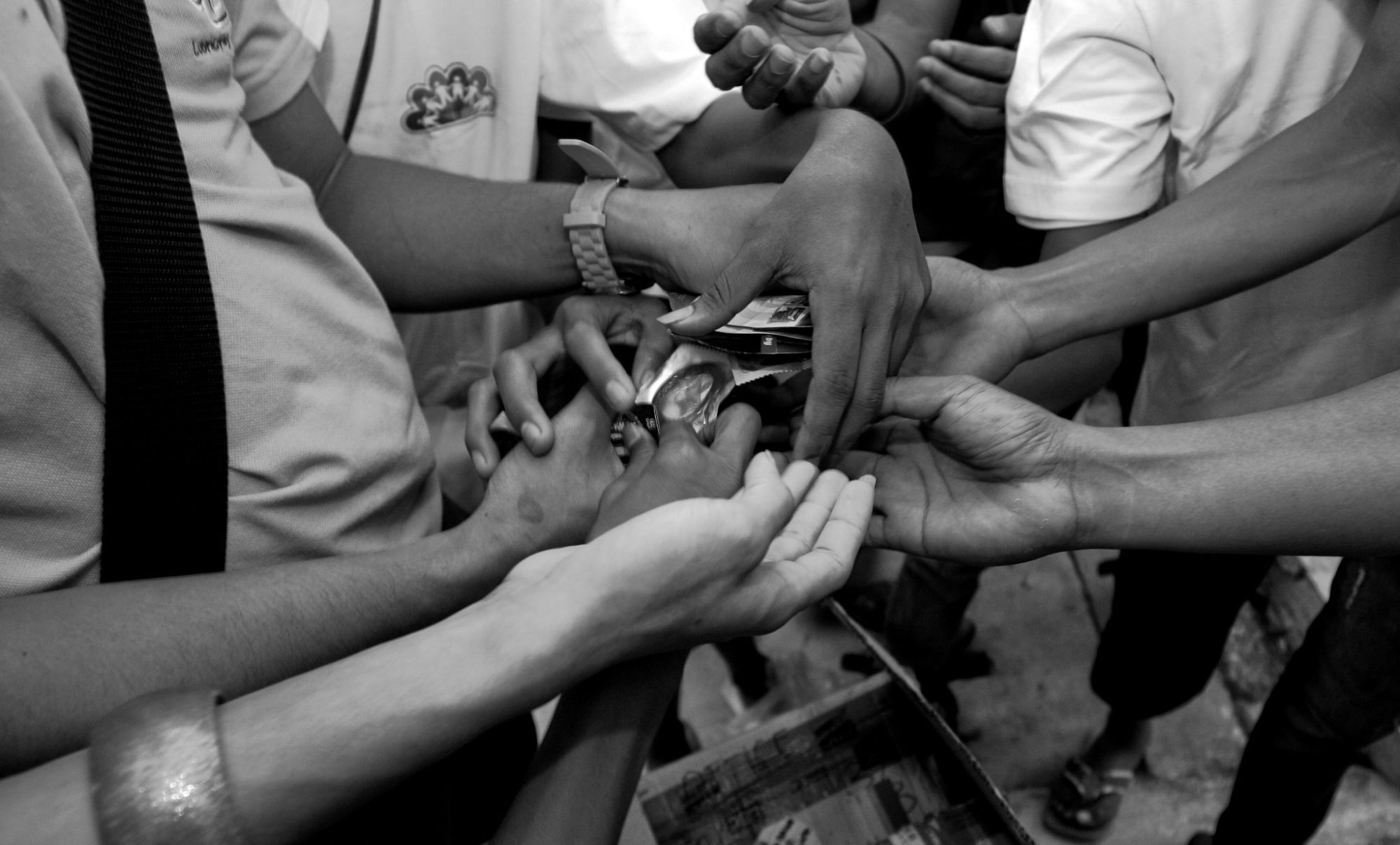The US Government knows how to do smart, effective HIV programming globally — but for the past three years, it has been getting in its own way. That’s because the US President’s Emergency Plan for AIDS Relief (PEPFAR), the largest government commitment to global HIV, was placed at risk when President Trump reintroduced the so-called global gag rule, applying it for the first time to PEPFAR. This policy prohibits foreign non-governmental organizations (NGOs) who have received any PEPFAR funding from providing, advocating for, or counseling women on abortion — even with their own funding or other donors’ funding.
While the global gag rule isn’t new — it was introduced by President Reagan in 1984 and has been removed by every Democratic president, and reinstated by every Republican president, ever since — the Trump administration took the policy further than ever before, jeopardizing a range of global health programs. By extending the gag rule to PEPFAR, what once applied to approximately $600 million, now applies to nearly $9 billion. Simply put, if you are a foreign organization who receives one dollar from PEPFAR then neither your organization nor anyone you support financially can provide or speak about abortion, except in cases of rape, incest, or endangerment of the life of the pregnant woman.
So what. Can’t these NGOs go to other funders, like the Nordic countries? Not exactly. For HIV prevention and treatment, PEPFAR is a major player. PEPFAR now provides treatment to 15.7 million people, up from 3.0 million in 2010 despite a flat budget since then. PEPFAR’s DREAMS program is driving reductions in new HIV diagnoses in adolescent girls and young women by 25% or more in all regions where it works. PEPFAR is also promoting rights-based programming for adolescent girls, young women and LGBTQ people in all the countries where it works. For most NGOs committed to ending the epidemic in their countries, to step away from PEPFAR would be to give up.
For most NGOs committed to ending the epidemic in their countries, to step away from PEPFAR would be to give up.
Why does this matter now? As this year’s AVAC Report makes clear, the global UNAIDS goal of reducing infections to 500,000 will not be met and remains stuck at 1.7 million people in large part due to our inability to slow infections in adolescent girls and young women. In sub-Saharan Africa, four in five new infections among adolescents aged 15–19 years are in girls. Because young women often seek sexual and reproductive health and HIV prevention services at the same time, the global gag rule represents a direct threat to combatting new infections.
Evidence shows the best and most effective way to reach adolescent girls and young women with HIV prevention is in integrated services through one-stop family planning clinics. That option is now closed for PEPFAR programs. Adolescent girls and young women in family planning clinics are referred to HIV prevention programs across town, or even in a different town. This is the system we have now under the global gag rule, and it is not working.
What could integration without the global gag rule achieve? Well, according to UNAIDS 46%, or 736,000, of all new HIV infections are in women. Some percentage of those infections would certainly be prevented by integrating family planning and HIV prevention services. If only 20% of infections were averted, that’s 150,000 fewer infections every year. This approach is not new. Health services globally have already moved to integrated programs. It’s a good policy — so good, in fact, that we are doing it in the US.
Just this week, CHANGE (the Center for Health and Gender Equity) released Trump’s global gag rule data sheet, a composite of the over 40 unique and devastating impacts of the policy over the past three years. Here is what we know:
Trump’s global gag rule expansion has contributed to the closing of clinics that provide comprehensive sexual and reproductive health and rights services including serving women living with HIV. The policy increases the risk of de-integration of family planning and HIV programming. This can lead to a decrease in access to family planning for people living with HIV.
Under the Trump administration, one-third of the nearly 300 PEPFAR partners across 31 countries surveyed by amfAR reported having to change their HIV prevention and treatment services.
So much so that the International Planned Parenthood Federation projects that Trump’s global gag rule expansion will render them unable to provide antiretroviral treatment to 275,000 pregnant women living with HIV and 725,000 HIV tests to people at risk of acquiring HIV.
We believe in the power of PEPFAR. The Trump administration‘s unprecedented expansion of the global gag rule undercuts the progress of what is widely considered the most effective and efficient development program in history. The impact of the global gag rule is not just in creating inefficiencies, but in impacting and in some cases shortening the lives of thousands of adolescent girls and young women. This is the third year of the policy’s reimposition, an anniversary that should not be repeated.
Bergen Cooper, MPH, is the Director of Policy Research at CHANGE, the Center for Health and Gender Equity. In this role, she develops and evaluates research and builds CHANGE’s institutional knowledge of sexual and reproductive health and rights.
Kevin Fisher is the Director of Data, Policy & Analytics, AVAC, a New York City-based international non-profit community- and consumer-based organization working to accelerate ethical development and delivery of AIDS vaccines and other HIV prevention options to populations throughout the world.




















